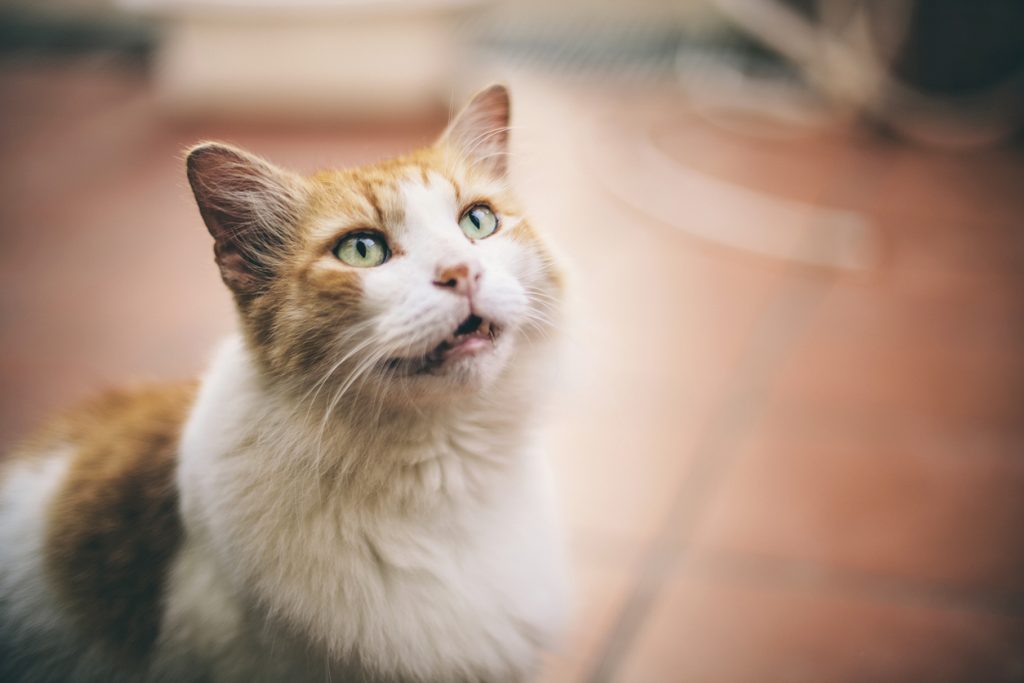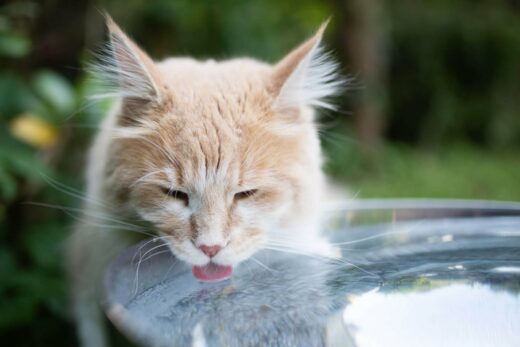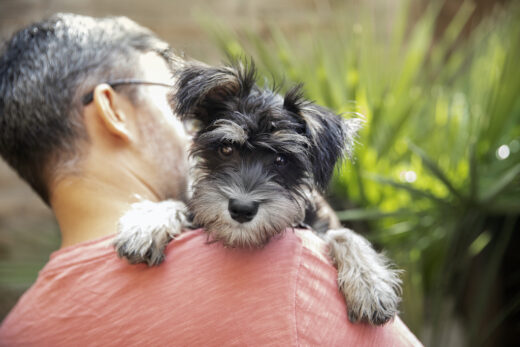When cats really want to know what’s going on around them, they use their powerful sense of smell. And they do much more than just casually sniffing at things. You’ll see them draw back their lips, wrinkle their muzzles, open their mouths, and suck in air with a soft “huffing” sound. You’ve probably wondered, why do cats open their mouths when they smell? Should I worry about my cat making these strange faces?
The Flehmen Response
It turns out our cats aren’t the only animals that open their mouths to enhance their ability to smell. This strange behavior, called “the flehman response,” is seen in a wide range of mammals. (But not in humans.) All of these animals (with the exception of horses) have special scent receptors on the roofs of their mouths as well as in their noses.
In the 1600s, Dutch anatomist Frederick Ruysch did some of the earliest research on the vomeronasal organ (it’s also known as a Jacobson’s organ) where these scent receptors are located. Ruysch even described the open-mouth breathing animals used to bring scents to the receptors. But it wasn’t until the 1930s that the director of a German zoo gave this open-mouthed smelling the name “flehmen response.” This comes from the German word “flehmen,” when means “to bare the upper teeth.”
There are several names for this exaggerated, open-mouthed sniffing. It’s also called “gaping,” “grimacing,” and “sneering.” Cats can look annoyed and aggressive when they’re engaged in this sort of smelling—even though they’re probably just preoccupied.

“Although the classic ‘stinkface’ looks a little menacing, it’s not meant to be,” says Dr. Rebecca Greenstein, a veterinarian who sits on The Dog People Panel at Rover. She’s Chief Veterinarian and practice owner at the award-winning Kleinburg Veterinary Hospital in Ontario, Canada.
So why do cats open their mouths when they smell? Dr. Greenstein says that numerous animals including cats, horses, elephants, and even pandas, will make this snarl-like gesture in response to certain scents that warrant extra-special attention from a sniffing point of view.
“The funny look cat parents often see is actually quite purposeful, and not at all aggressive,” Dr. Greenstein says. “The lip curl allows the transmission of certain scent hormones called pheromones into the mouth. It’s sort of like smelling and tasting a scent simultaneously.”
How Well Do Cats Smell?





